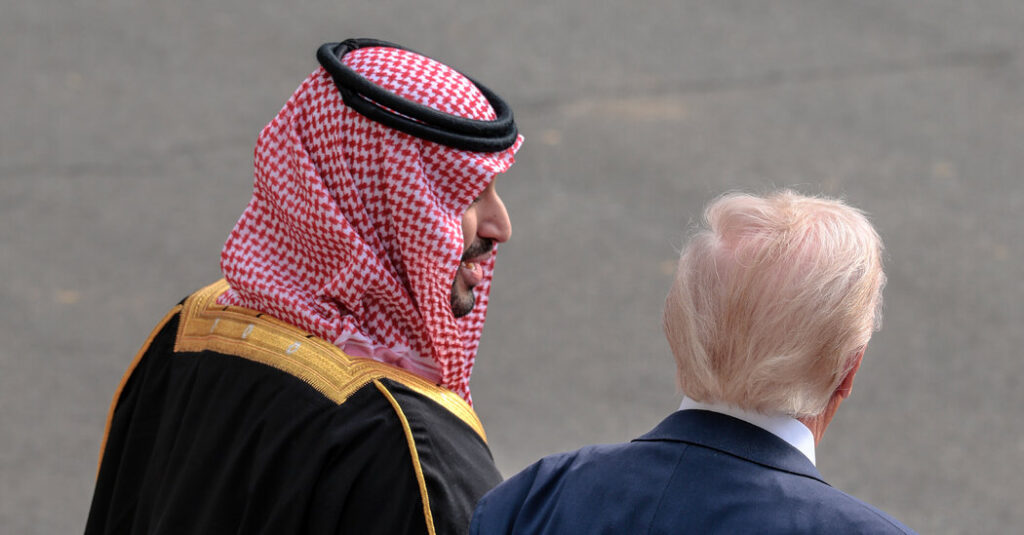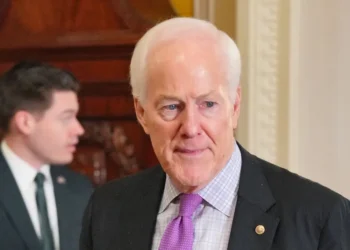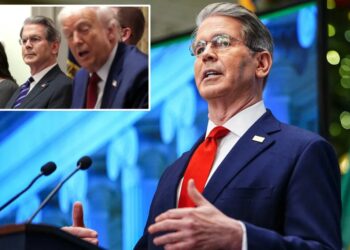The realities of geopolitics have long required the United States to ally itself with foreign leaders who commit terrible deeds. Defeating foreign threats often requires the help of countries that fall far short of being liberal democracies that respect human rights. Saudi Arabia is a classic example of such a country today. It both has a disturbing human rights record and is a legitimately valuable American partner in countering Iran’s aggressions and building a more stable Middle East.
But working with imperfect partners does not mean that the United States should cover up and lie about their misdeeds, as President Trump did when receiving Crown Prince Mohammed bin Salman, Saudi Arabia’s de facto ruler, in the Oval Office on Tuesday. It was a fawning, cringe-worthy performance that belied America’s more powerful status. It was absolution rather than realpolitik.
Mr. Trump embraced the prince’s implausible claim of innocence in the 2018 murder of Jamal Khashoggi, a Saudi citizen and journalist, and berated Mary Bruce, of ABC News, for asking about the killing. The C.I.A. has concluded that the crown prince almost certainly ordered the killing of Mr. Khashoggi, a critic of the prince who was living in self-imposed exile in the United States and was murdered while visiting a Saudi consulate in Turkey. A United Nations investigator and a coalition of nongovernmental organizations reached similar conclusions.
These inquiries noted that Saudi officials offered conflicting accounts of the killing and concealed information about it. Eventually, the kingdom investigated several members of Prince Mohammed’s inner circle for the killing.
The president’s performance was alarming for three main reasons. One, it suggested that the truth was irrelevant, and it discarded the hard work of American intelligence in trying to determine that truth. It continued a long pattern of Mr. Trump lying when it suits his interests.
Two, he whitewashed a brutal human-rights violation — a killing by strangulation, followed by the dismembering and disposal of the body, committed by a team of Saudi operatives. The United States does not have the power to rid the world of human-rights abuses. At its best, though, this country has successfully nudged allies toward better behavior. Mr. Trump, by contrast, signaled this week that foreign despots can eliminate bothersome critics without worry of American disapproval.
Three, the president showed open disdain for the principles of press freedom enshrined in the Constitution. Traditionally, foreign leaders who visit the White House understand that they will not be able to avoid hard questions, as authoritarian leaders can at home. Ms. Bruce, the ABC correspondent, lived up to this tradition with a two-part question about the Trump family’s business dealings in Saudi Arabia and the prince’s role in Mr. Khashoggi’s killing.
Mr. Trump unpersuasively waved away his conflicts of interest before demeaning Mr. Khashoggi — “a lot of people didn’t like that gentleman that you’re talking about” — and defending Prince Mohammed. “He knew nothing about it, and we can leave it at that,” Mr. Trump said. “You don’t have to embarrass our guest by asking a question like that.”
The role of the news media in our democracy is not to flatter foreign leaders or, for that matter, American ones. It is to pose important and sometimes challenging questions and publish the facts. As president, Mr. Trump repeatedly shows contempt for this principle. Over the past week alone, he called Ms. Bruce “a terrible person” and told another female reporter, “Quiet, piggy.” His behavior suggests that he would prefer an American news media that behaves more like Saudi Arabia’s largely muzzled and obsequious media.
The prince is a complicated dictator. He has pushed his country to become more modern and open in important ways, including by expanding women’s rights, reducing the influence of religious hard-liners and diversifying the economy. He also remains an authoritarian. In addition to evidently masterminding the savage killing of Mr. Khashoggi, he regularly jails critics and has overseen a sharp increase in executions for low-level drug offenses. The appropriate role for the United States is to make him uncomfortable about his abuses and push Saudi Arabia toward a freer future.
The Times is committed to publishing a diversity of letters to the editor. We’d like to hear what you think about this or any of our articles. Here are some tips. And here’s our email: [email protected].
Follow the New York Times Opinion section on Facebook, Instagram, TikTok, Bluesky, WhatsApp and Threads.
The post Trump’s Fawning Meeting With the Saudi Prince Was a Disgrace appeared first on New York Times.




